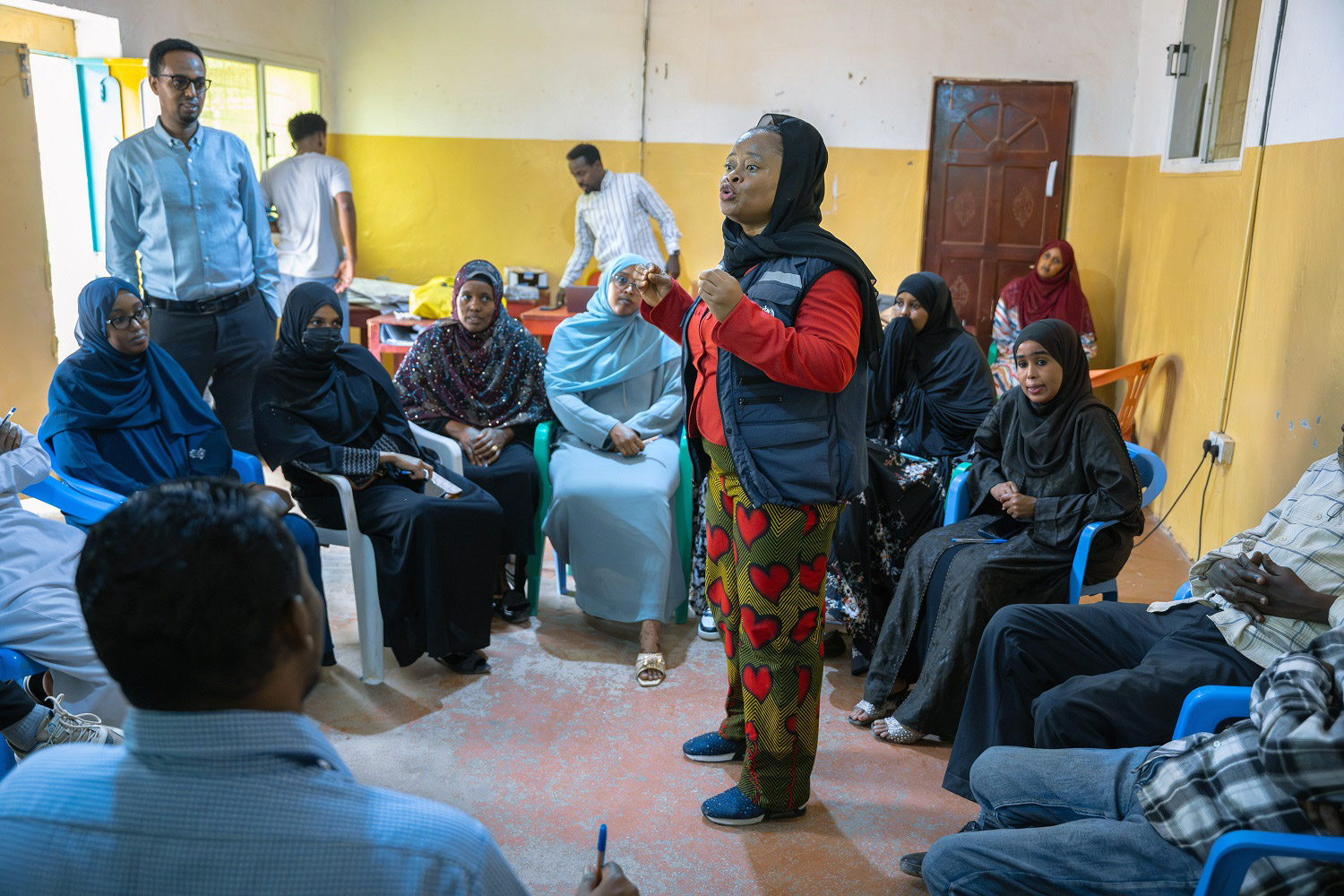 19 August 2025, Mogadishu, Somalia – In Somalia’s under-resourced hospitals, trauma patients often arrive to find blood supply and essential medical equipment shortages, trauma teams with limited capacity and inadequate systems in place for handling a surge in trauma patients. During mass casualty incidents these limitations cause delays that put lives at risk.
19 August 2025, Mogadishu, Somalia – In Somalia’s under-resourced hospitals, trauma patients often arrive to find blood supply and essential medical equipment shortages, trauma teams with limited capacity and inadequate systems in place for handling a surge in trauma patients. During mass casualty incidents these limitations cause delays that put lives at risk.
As violence escalates in parts of Jubaland and Somaliland, Somalia’s emergency health system and first responders face mounting challenges. Health workers, including doctors, nurses, security staff and cleaners, regularly operate under high pressure. They must make critical decisions while managing the emotional and physical demands of repeated exposure to trauma. Over time, this sustained stress can negatively impact their well-being and ability to deliver quality care.
To help alleviate these pressures, World Health Organization (WHO) Somalia launched a trauma preparedness initiative aimed at improving patient outcomes while safeguarding the health and mental well-being of health workers. Supported by the Contingency Fund for Emergencies, the initiative combines delivery of trauma supplies with training in mass casualty management, psychological first aid and trauma-informed care, helping ensure that health workers are equipped, supported and protected as they serve their communities.
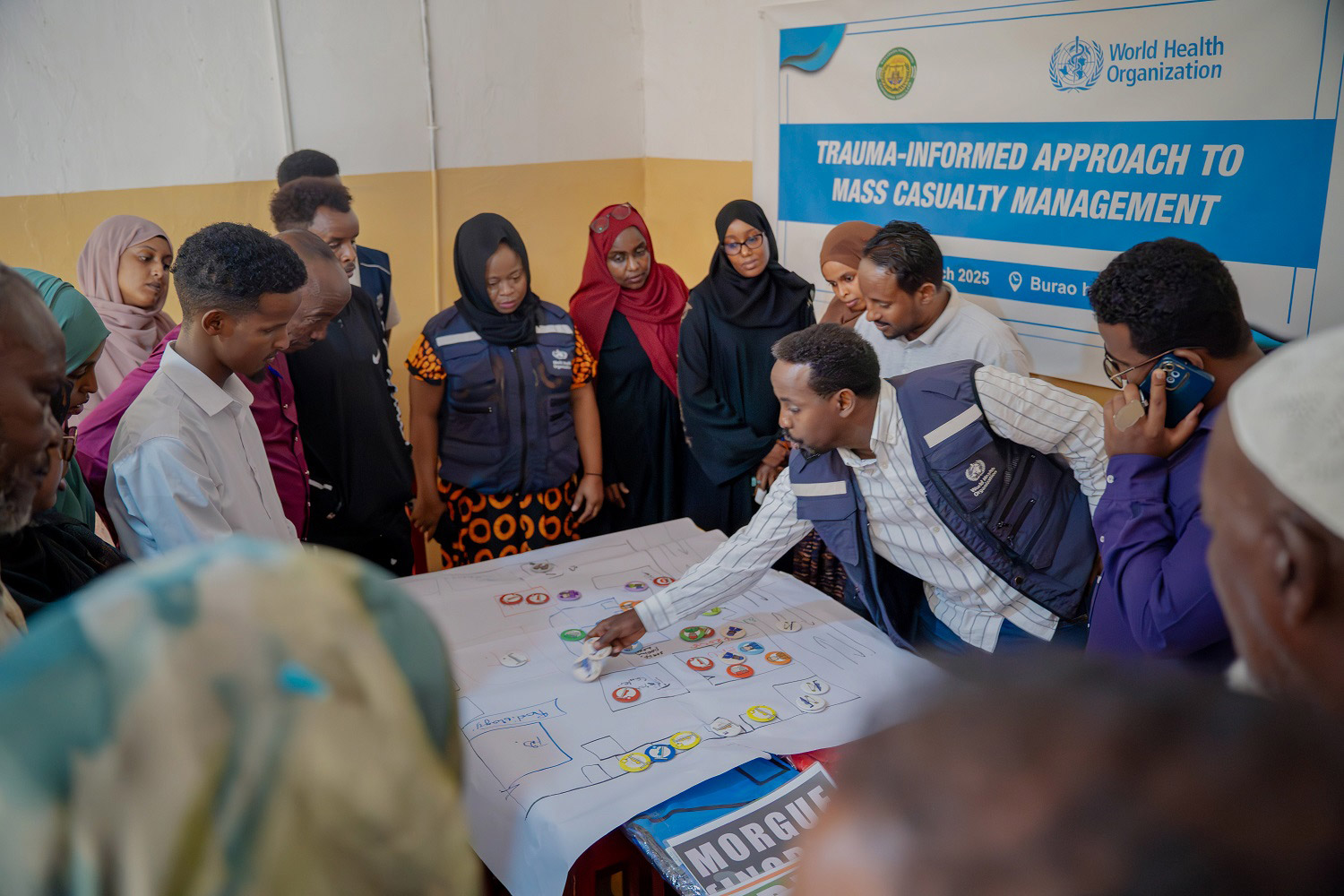 The training in Bossaso and Burao brought together 49 frontline staff, including doctors, nurses and support workers, to prepare for high-stress emergencies. Participants practiced triage under pressure and conducted full simulation drills to replicate the chaos of conflict-driven surges. Unlike most emergency trainings in Somalia, the programme guided frontline staff through self-care planning, stress regulation techniques and clinically supervised debriefings to help safeguard their mental health.
The training in Bossaso and Burao brought together 49 frontline staff, including doctors, nurses and support workers, to prepare for high-stress emergencies. Participants practiced triage under pressure and conducted full simulation drills to replicate the chaos of conflict-driven surges. Unlike most emergency trainings in Somalia, the programme guided frontline staff through self-care planning, stress regulation techniques and clinically supervised debriefings to help safeguard their mental health.
“The most encouraging outcome of this workshop was that participants reached a level where they understood the change is for them and their well-being,” said WHO Somalia’s Mental Health and Psychosocial Support Specialist Uchechi Chukwuma.
In Burao, frontline staff spoke about how the training will help them negotiate the challenges they face working in a region where conflict-related injuries are common. The knowledge and confidence gained from the sessions would empower them to save lives in the most stressful situations.
“This training was crucial for us because Burao General Hospital in Togdheer receives many war-related injuries. Strengthening our skills means we can respond more effectively and save more lives,” said Farhan Ali Osman, who work in the Emergency Department at Burao General Hospital.
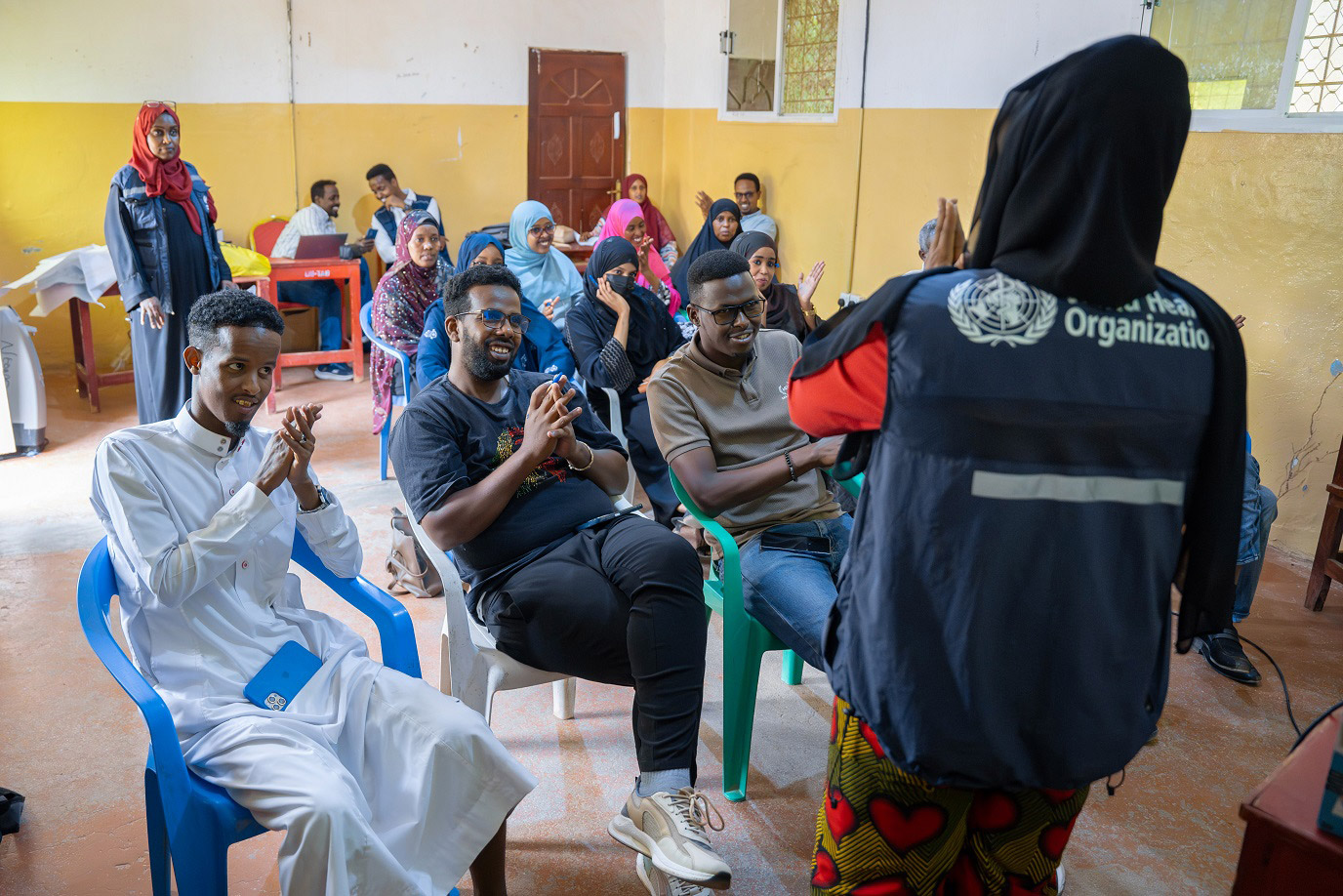 In parallel with the training, WHO distributed 32 trauma kits to hospitals across Federal Member States. Many of these facilities are in hard-to-reach or conflict-affected areas, including Jubaland, Hirshabelle, Galmudug, Puntland, Southwest State and Banadir. To speed up emergency response, the kits were pre-positioned at WHO hubs in Hargeisa, Garowe and Mogadishu.
In parallel with the training, WHO distributed 32 trauma kits to hospitals across Federal Member States. Many of these facilities are in hard-to-reach or conflict-affected areas, including Jubaland, Hirshabelle, Galmudug, Puntland, Southwest State and Banadir. To speed up emergency response, the kits were pre-positioned at WHO hubs in Hargeisa, Garowe and Mogadishu.
In Bosaso, a full-scale simulation tested clinical response and coordination across departments. Using colour-coded triage wristbands, designated patient zones and phased activation protocols, the drill revealed strong staff cohesion while identifying logistical gaps such as documentation and equipment shortages.
The initiative supports longer-term system strengthening. A draft mass casualty management plan was developed for Bosaso General Hospital which can serve as a model for other regional facilities. Meanwhile, a coordination workshop co-led by WHO and the United Nations Population Fund (UNFPA) in Mogadishu brought together partners to integrate mental health and psychosocial support, gender-based violence services and trauma protocols into the broader humanitarian response.
WHO Somalia aims to scale this approach to hospitals nationwide. With continued collaboration from the Ministry of Health and key partners, the goal is to reduce trauma-related mortality and morbidity while protecting frontline workers.
The health system can’t heal without its workforce healing too.
For more information:
Myriam Haberecht
Lead External Relations/Communications
WHO Somalia (
هذا البريد محمى من المتطفلين. تحتاج إلى تشغيل الجافا سكريبت لمشاهدته.
)
Kira Britten, Donor Communications Officer
هذا البريد محمى من المتطفلين. تحتاج إلى تشغيل الجافا سكريبت لمشاهدته.
Related link





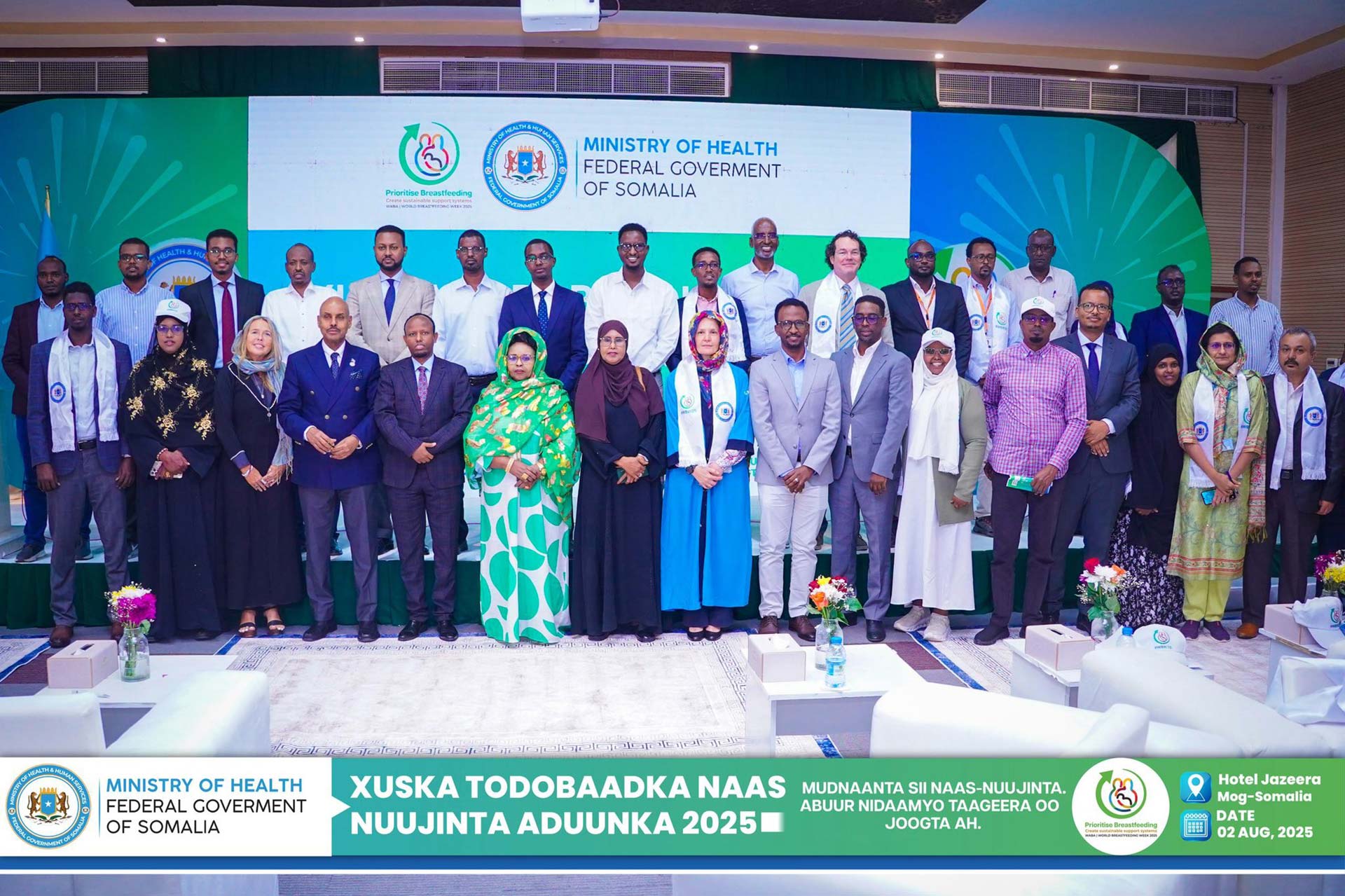 This year’s theme, Prioritize Breastfeeding: Create Sustainable Support Systems, recognizes the barriers that breastfeeding mothers face – inadequate support, misinformation and systemic challenges that include a lack of paid time off from work to breastfeed, of parental leave after the baby is born, and inadequate protection from marketing of breastmilk substitutes – and calls on the government, the health system, workplaces and communities to build enduring, equitable frameworks that support breastfeeding mothers and empower families.
This year’s theme, Prioritize Breastfeeding: Create Sustainable Support Systems, recognizes the barriers that breastfeeding mothers face – inadequate support, misinformation and systemic challenges that include a lack of paid time off from work to breastfeed, of parental leave after the baby is born, and inadequate protection from marketing of breastmilk substitutes – and calls on the government, the health system, workplaces and communities to build enduring, equitable frameworks that support breastfeeding mothers and empower families.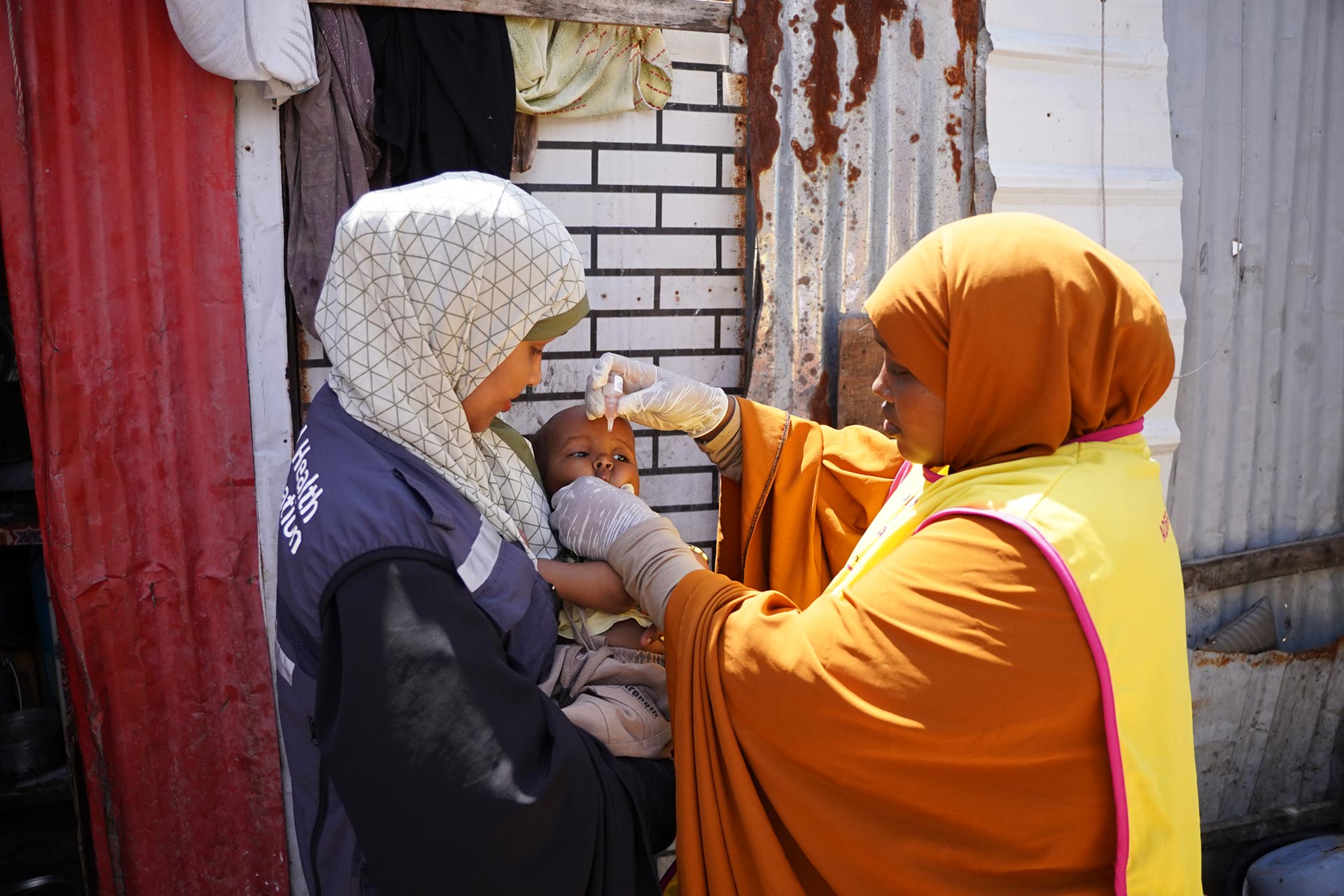 15 July 2025, Mogadishu, Somalia – The annual World Health Organization (WHO)/United Nations Children’s Fund (UNICEF) Estimates of National Immunization Coverage (WUENIC) released today reports that 70% of children in Somalia are fully vaccinated, an increase of 28% between 2012 to 2024, with steady improvements registered across all antigens since 2019.
15 July 2025, Mogadishu, Somalia – The annual World Health Organization (WHO)/United Nations Children’s Fund (UNICEF) Estimates of National Immunization Coverage (WUENIC) released today reports that 70% of children in Somalia are fully vaccinated, an increase of 28% between 2012 to 2024, with steady improvements registered across all antigens since 2019. 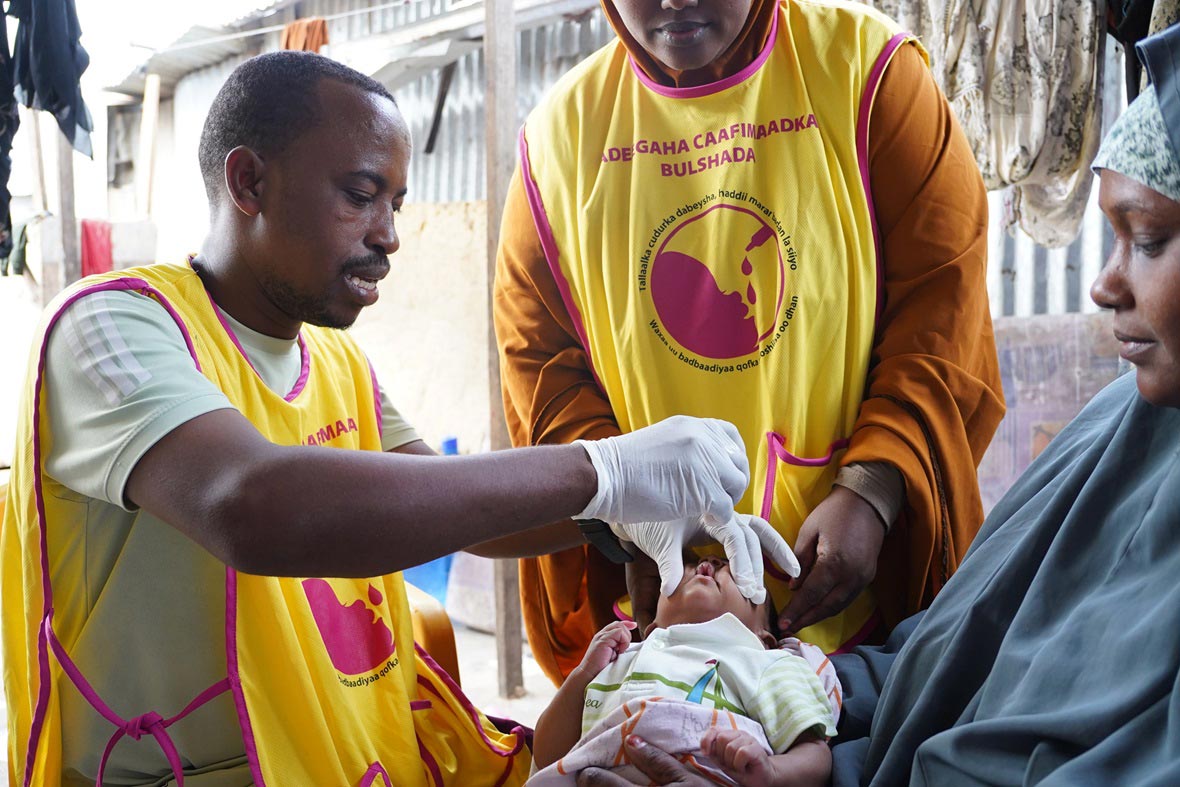 Expanding routine immunization coverage in Somalia has long been hampered by ongoing conflict, displacement, inaccessibility and limited health infrastructure. For decades coverage was below 50%, leaving an estimated 1.5 million children missing out on vaccines. It is encouraging to note that through the Big Catch-Up, nearly 700 000 zero-dose children received their first dose of pentavalent vaccine which protects against potentially fatal diseases like diphtheria and whooping cough.
Expanding routine immunization coverage in Somalia has long been hampered by ongoing conflict, displacement, inaccessibility and limited health infrastructure. For decades coverage was below 50%, leaving an estimated 1.5 million children missing out on vaccines. It is encouraging to note that through the Big Catch-Up, nearly 700 000 zero-dose children received their first dose of pentavalent vaccine which protects against potentially fatal diseases like diphtheria and whooping cough. 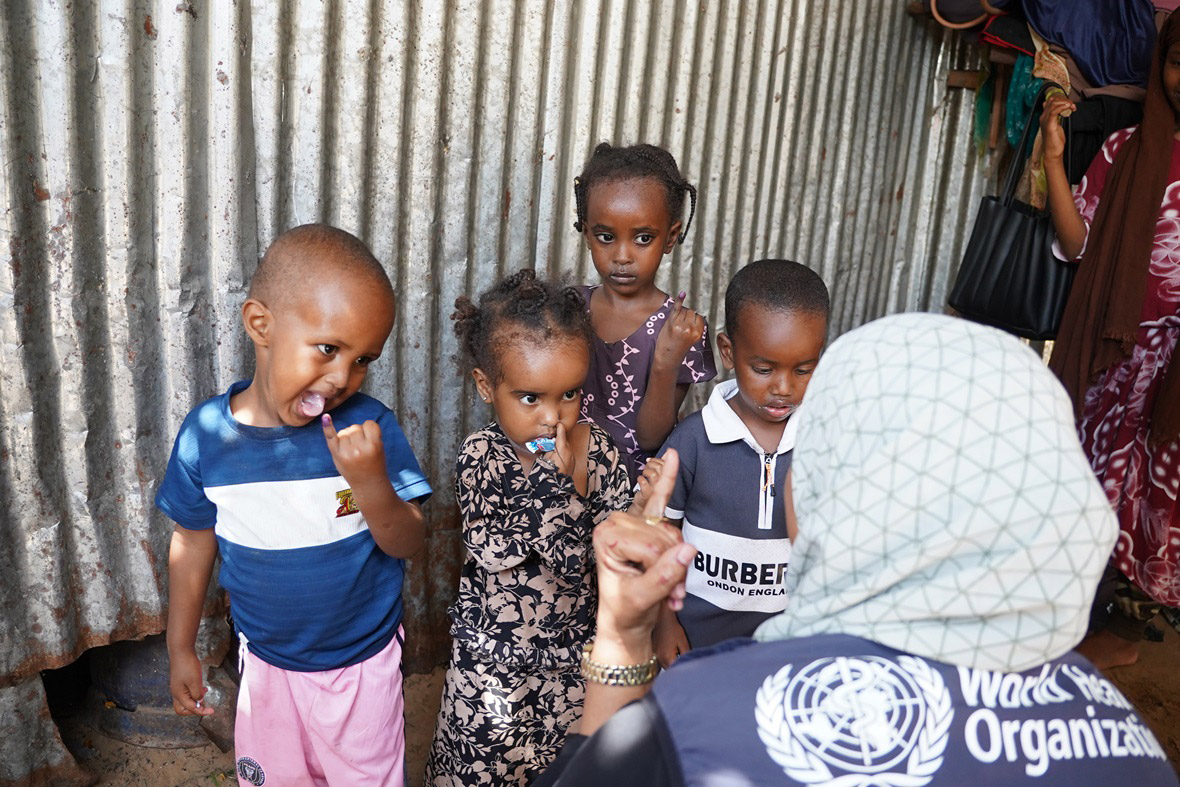 “Investments and coordinated efforts to strengthen Somalia’s child immunization programme are yielding high results,” said UNICEF Acting Representative in Somalia Nisar Syed. “For example, UNICEF is leading on improving vaccine storage capacity and the ability to keep them at the right temperature. To date, 90% of health facilities providing vaccinations have been equipped with solar-powered refrigeration. Together with the ministries of health, our dedicated partners and resilient health workers, children are being reached with lifesaving vaccines, even in some of the most difficult and hard-to-reach places.”
“Investments and coordinated efforts to strengthen Somalia’s child immunization programme are yielding high results,” said UNICEF Acting Representative in Somalia Nisar Syed. “For example, UNICEF is leading on improving vaccine storage capacity and the ability to keep them at the right temperature. To date, 90% of health facilities providing vaccinations have been equipped with solar-powered refrigeration. Together with the ministries of health, our dedicated partners and resilient health workers, children are being reached with lifesaving vaccines, even in some of the most difficult and hard-to-reach places.” 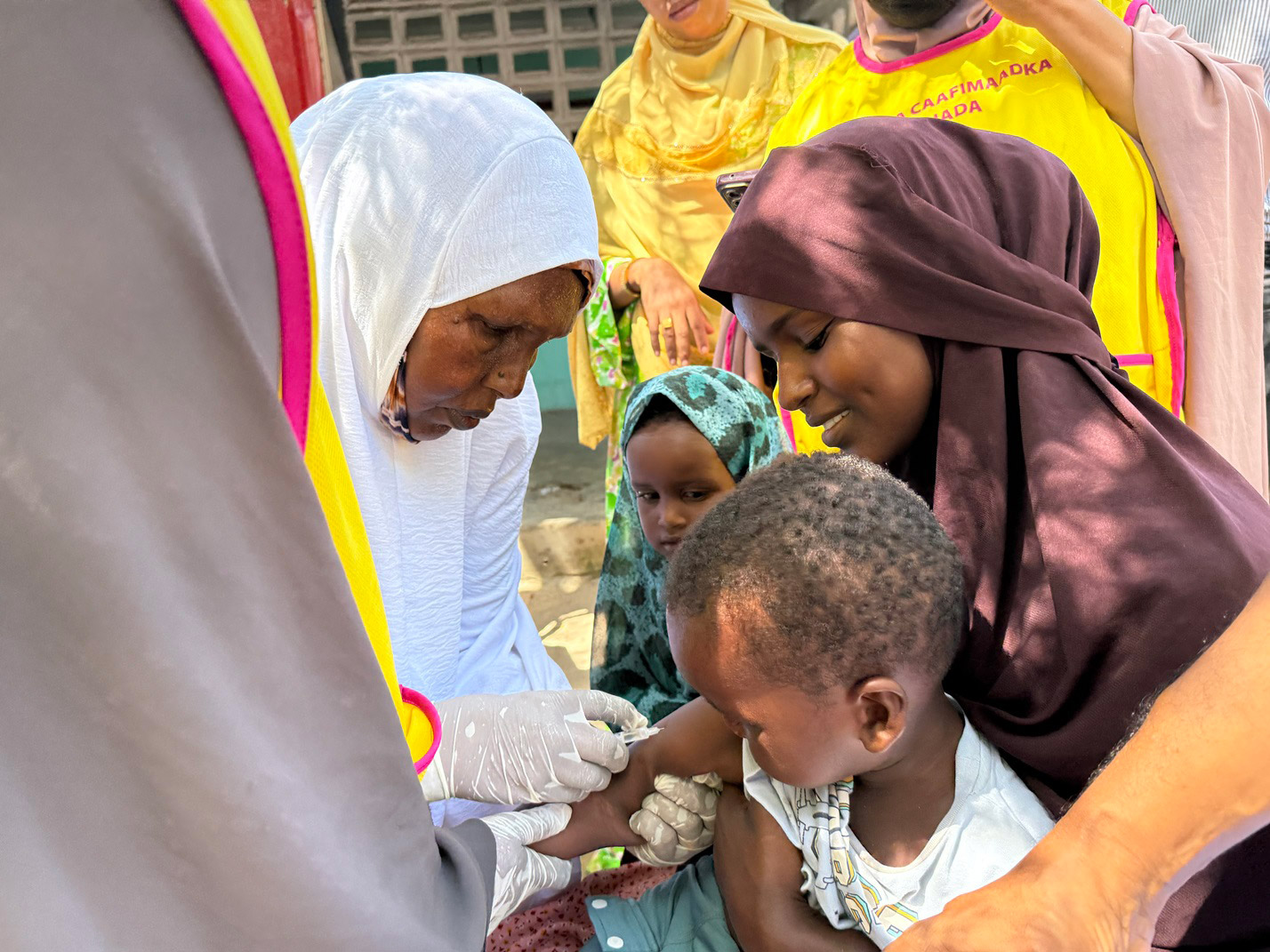 30 June 2025, Mogadishu, Somalia – Mothers visited the Hamar Jajab Maternal and Child Health Centre in Banadir region on a hot morning in May, babies cradled in one arm, toddlers clinging to the other, to join the queues of caregivers waiting under the shade of a big tree inside the facility, all hoping to get their children vaccinated.
30 June 2025, Mogadishu, Somalia – Mothers visited the Hamar Jajab Maternal and Child Health Centre in Banadir region on a hot morning in May, babies cradled in one arm, toddlers clinging to the other, to join the queues of caregivers waiting under the shade of a big tree inside the facility, all hoping to get their children vaccinated. Mulki Osman Ali, a 26-year-old mother of 2 – a son aged 2 and a daughter just over one-and-a-half years old – was among the mothers present at the health centre in Hamar Jajab. She explained this was the first time her children had the opportunity to receive the PCV and rotavirus vaccines.
Mulki Osman Ali, a 26-year-old mother of 2 – a son aged 2 and a daughter just over one-and-a-half years old – was among the mothers present at the health centre in Hamar Jajab. She explained this was the first time her children had the opportunity to receive the PCV and rotavirus vaccines.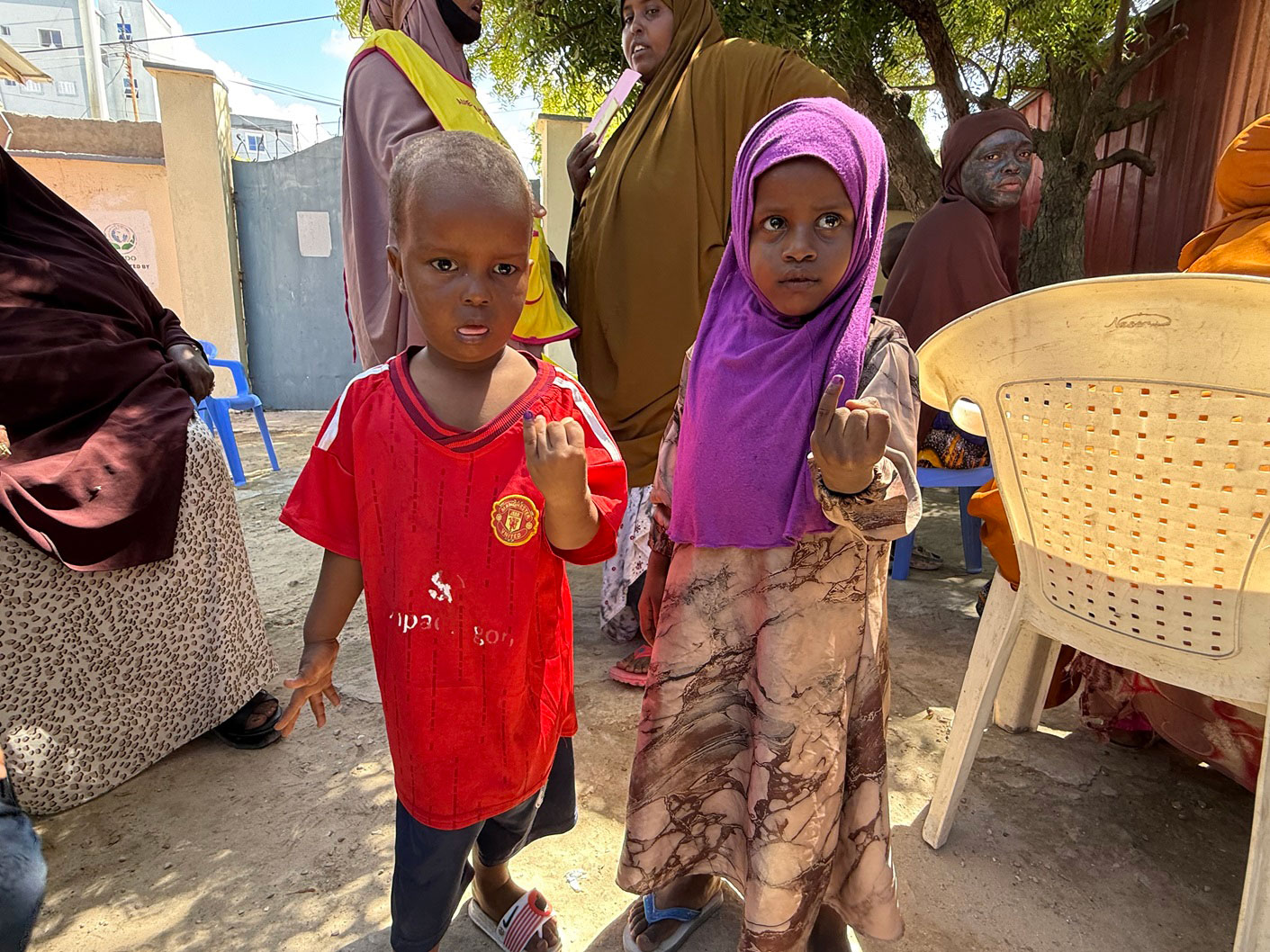 Community trust in local health workers is a cornerstone of successful vaccination efforts, in a society where both parents play crucial roles in ensuring children can access health care.
Community trust in local health workers is a cornerstone of successful vaccination efforts, in a society where both parents play crucial roles in ensuring children can access health care. 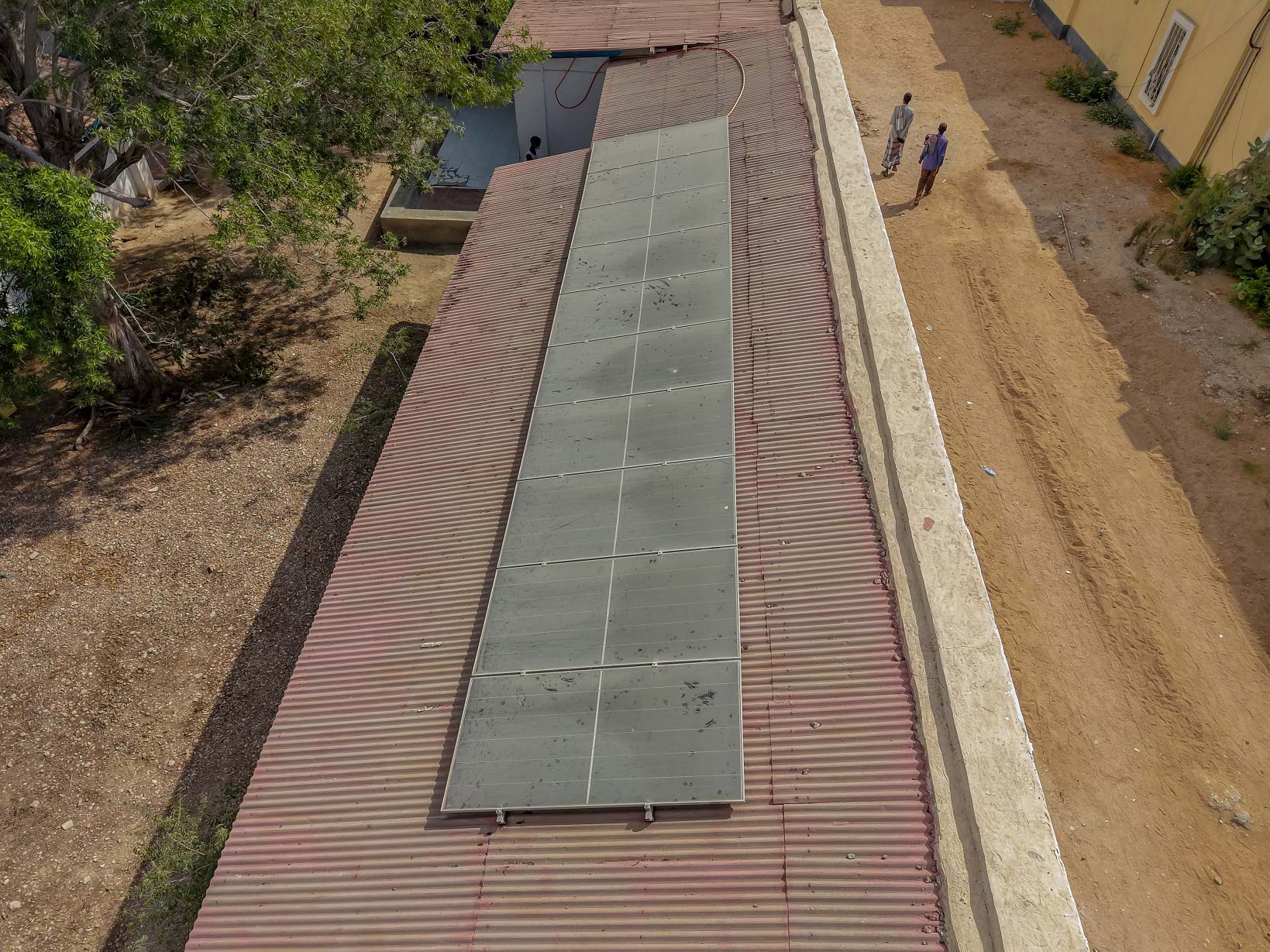 12 May 2025, Mogadishu, Somalia – As the world marks Immunization Week 2025, a powerful story of innovation and impact is emerging from Somalia’s coastal city of Berbera. Once affected by frequent power outages that jeopardized the delivery of essential health services, Berbera’s hospitals are now running around the clock thanks to newly installed solar battery systems supported by the King Salman Humanitarian Aid and Relief Centre (KSrelief) and WHO Somalia.
12 May 2025, Mogadishu, Somalia – As the world marks Immunization Week 2025, a powerful story of innovation and impact is emerging from Somalia’s coastal city of Berbera. Once affected by frequent power outages that jeopardized the delivery of essential health services, Berbera’s hospitals are now running around the clock thanks to newly installed solar battery systems supported by the King Salman Humanitarian Aid and Relief Centre (KSrelief) and WHO Somalia.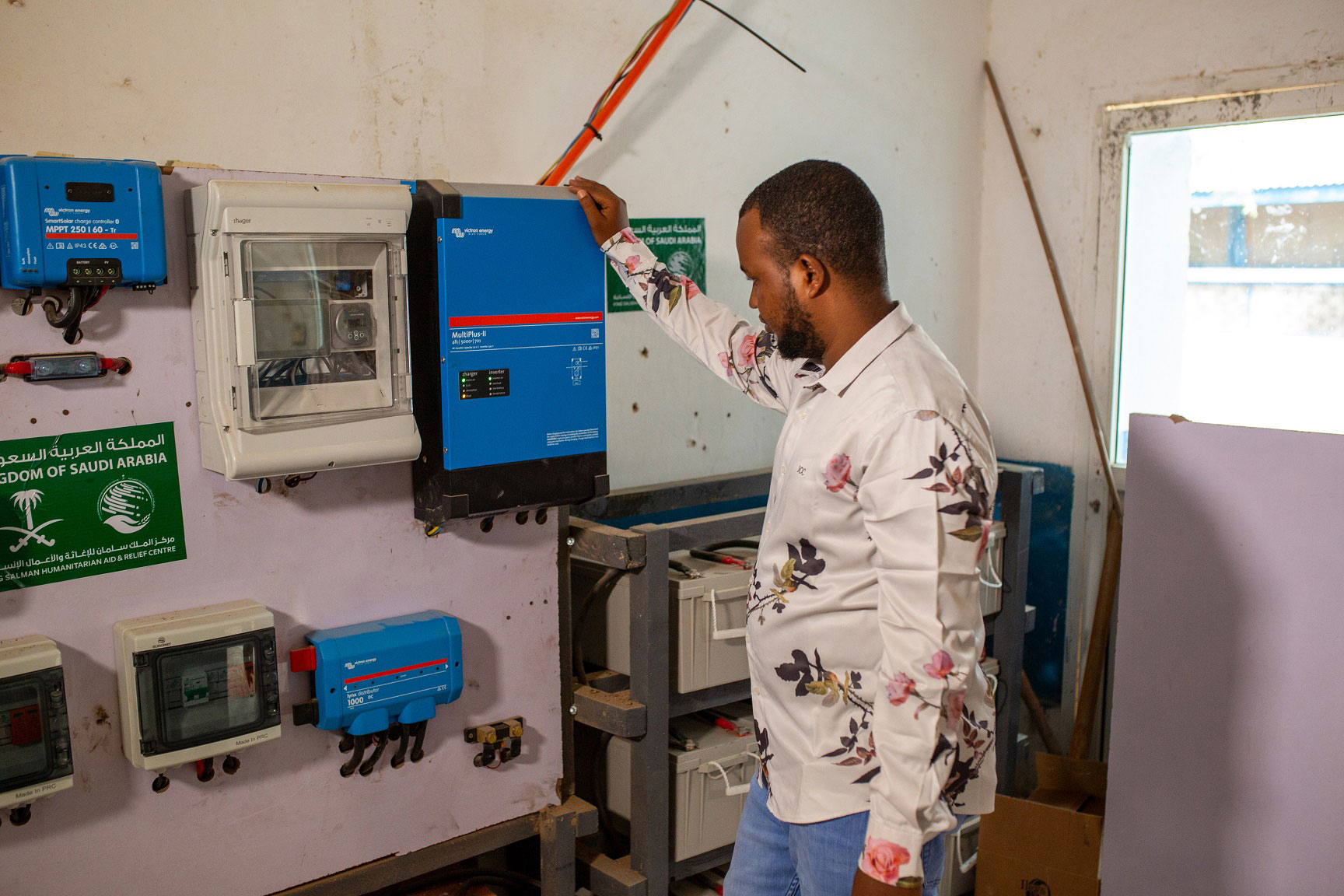 Power disruptions once hindered lab tests, delayed diagnoses, and threatened the integrity of vaccines stored in hospital refrigerators. Today, solar power ensures that machines, refrigerators, and air conditioning systems run continuously, supporting accurate diagnostics and consistent immunization services.
Power disruptions once hindered lab tests, delayed diagnoses, and threatened the integrity of vaccines stored in hospital refrigerators. Today, solar power ensures that machines, refrigerators, and air conditioning systems run continuously, supporting accurate diagnostics and consistent immunization services.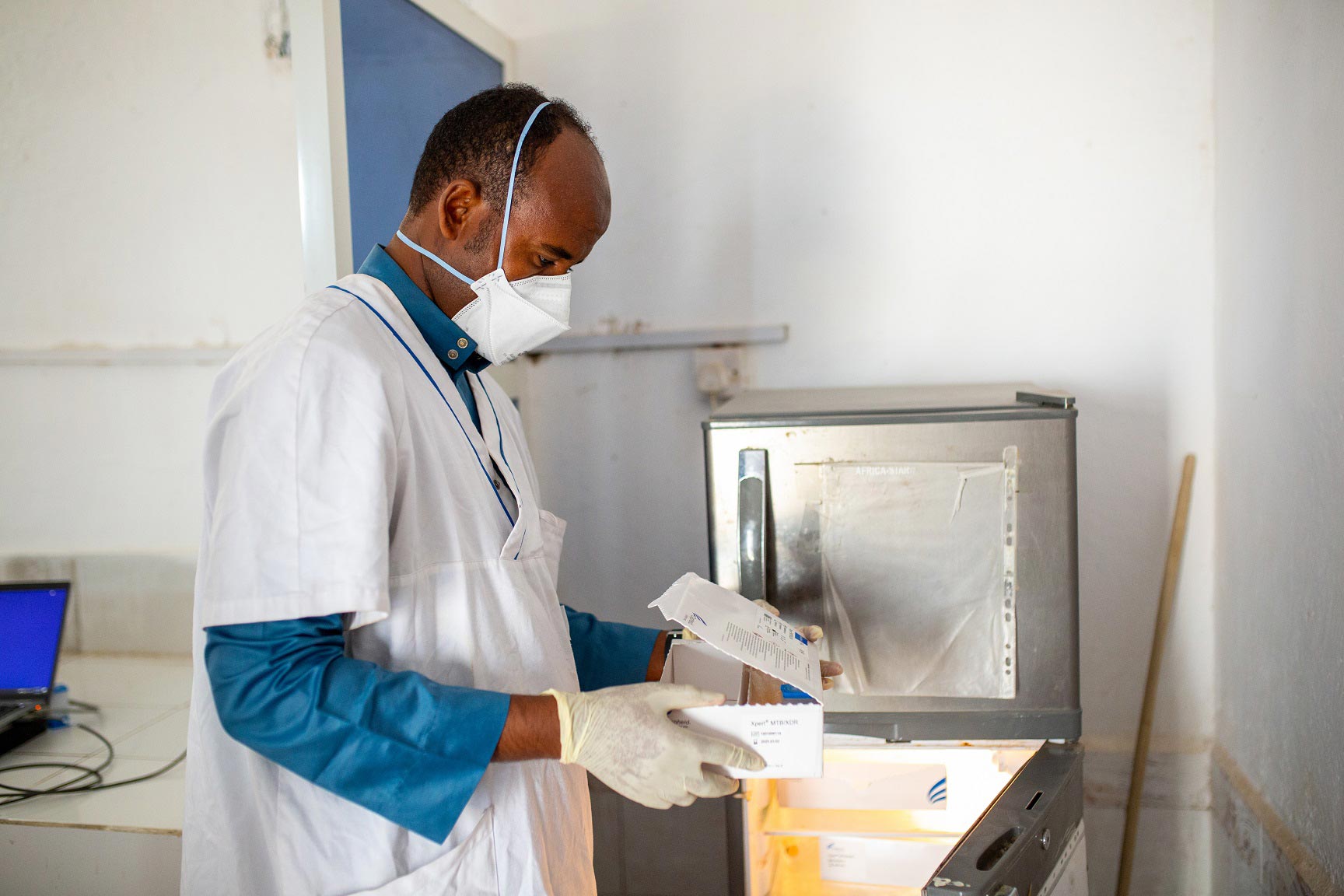 “This solar system is available 24/7, making the diagnosing process easier than before by reducing the waiting time at reception,” adds Mursal Ahmed Jama. “That means children and families can be served more efficiently.”
“This solar system is available 24/7, making the diagnosing process easier than before by reducing the waiting time at reception,” adds Mursal Ahmed Jama. “That means children and families can be served more efficiently.”